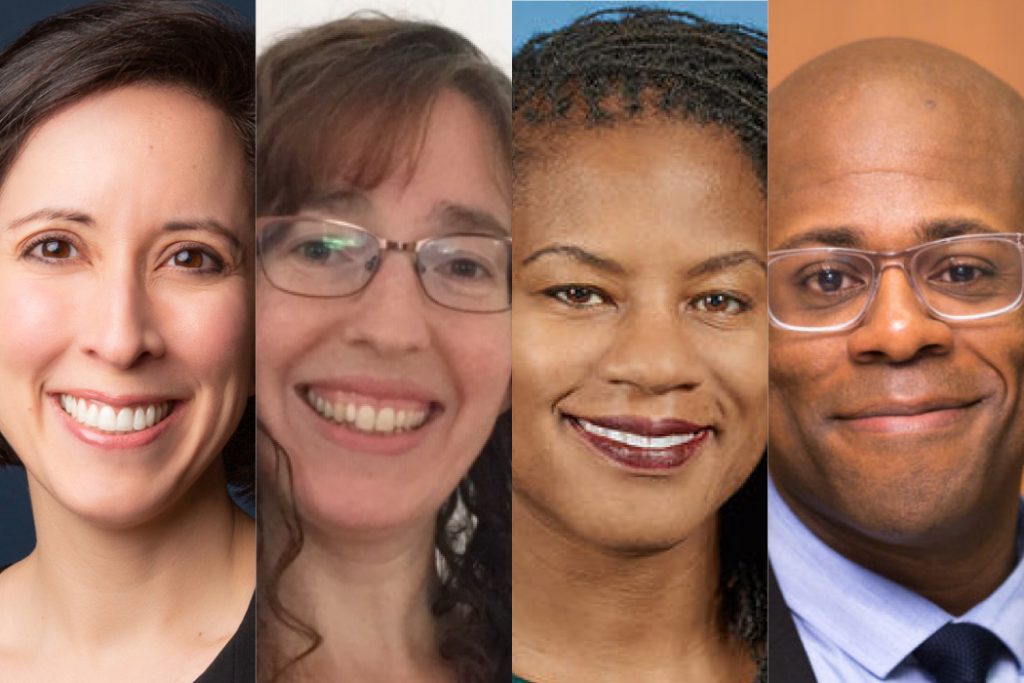The Rappaport Center for Law and Public Policy’s October 21 webinar on zoning and equity centered around the need for more integrated communities and the challenges that stand in the way of achieving more equitable housing situations in towns and cities across the country.
Moderator Amy Dain, a consultant at Dain Research and author of the recent case study “The State of Zoning for Multi-Family Housing in Greater Boston,” said there is a need for more in-depth research into zoning policies in order to shed light on issues that currently hamper growth. “Zoning is a tool to manage growth, but it’s more often used to suppress growth,” she said.
By way of example, Dain pointed to notable differences between zoning practices in towns and cities north of Boston, with towns being more restrictive with housing. She described the result this way: “When we fail to build enough housing, prices escalate, and it’s estimated that we are short hundreds of thousands of homes in Massachusetts. To be clear, all cities and towns of the region highly restrict housing development, but I have noticed that, on average, towns restrict housing much more than cities do.”
Sara Bronin, a professor at Cornell Law School and the School of Art, Architecture, and Planning, said the power of research to uncover serious zoning issues is evidenced in the work of Desegregate Connecticut, a coalition of neighbors and nonprofits she has been advising. The group has advocated successfully for more equitable, affordable, and environmentally sustainable land use policies in Connecticut, in the hope of expanding the diversity and supply of housing stock. Among their achievements are required training for commissioners, the legalization of accessory apartments, and the capping of parking mandates.
“We started in June 2020 in response to George Floyd’s murder, which highlighted the need for reform on a number of fronts, including zoning,” Bronin said. They soon discovered that “there is a lot of power in partnerships” and that building coalitions outside of the housing community can lead to zoning reform.
Lydia Edwards, Boston District One city councilor, said there have been similar efforts within the city of Boston to increase opportunity for integrated communities. She credited Affirmatively Furthering Fair Housing (AFFH), a regulation promulgated during the Obama Administration.
The goal of the rule, she remarked, was “to make sure that we didn’t just have a fair housing policy that was about not discriminating, because that wasn’t good enough. Instead, we need to be moving towards integrated communities and taking meaningful actions to remove obstacles to opportunities.”
Edwards said the Trump Administration did all it could to roll back the regulation, which resulted in the development of Boston’s own version and which has been adopted by the Public Housing and Department of Neighborhood Development agencies. The problem with the local regulation, she explained, is that with regard to zoning, racial integration and racial justice was predominantly left to affirmative marketing. She contended that that strategy wasn’t a viable solution because affirmative marketing occurs after a project is built. “They [developers] will affirmatively market to all diverse communities, and explain that [residents] cannot afford to live there,” she said.
Edwards gave Boston’s newly developed Seaport District as an example. “It was a wonderful opportunity to take so many lessons learned about redlining, about zoning, about exclusive communities, and about environmental justice. If you look at the end result, you don’t see any of these lessons; what you see is one of the richest and whitest neighborhoods ever built,” Edwards said.
“If you want to obliterate concentrations of poverty and wealth, and if you want families—the largest group being discriminated against in the housing market—to be welcome, you must be intentional in your zoning,” Edwards continued. “That is why we have created the AFFH Zoning Amendment.”
The amendment requires Boston developers to go through a process to understand the history of what they are purchasing and how their building impacts the surrounding community. The lesson, she said, is: “You cannot cause further injury with how you build, where you place, and how you price your building.”
Harley Etienne, associate professor of urban and regional planning at the University of Michigan’s Taubman College of Architecture and Urban Planning, concurred. “It’s important to bring zoning out of the shadows,” he said. “People who are educated about what planning is, and how it governs their property and how they live, are able to swing the process and what it does in their favor.” Such action can help to avoid the use of zoning as a crude instrument to exclude. “When it’s in the shadows, that is what zoning can be used to do,” said Etienne.
Following that train of thought, Bronin noted that “zoning is a powerful tool to enable us to improve the way that we live and interact with each other.” However, she doesn’t think we’ve gotten it right. “In the vast majority of cases, we’ve gotten it wrong,” she argued. “While zoning reform will never be the only solution, it is the root of the structural racism that’s embedded in our overall land development laws.”
The event was co-sponsored by the Boston College Black Law Students Association (BLSA) and the Harvard Joint Center for Housing Studies.
Photo left to right: Sarah Bronin, Amy Dain, Lydia Edwards, and Harley Etienne


